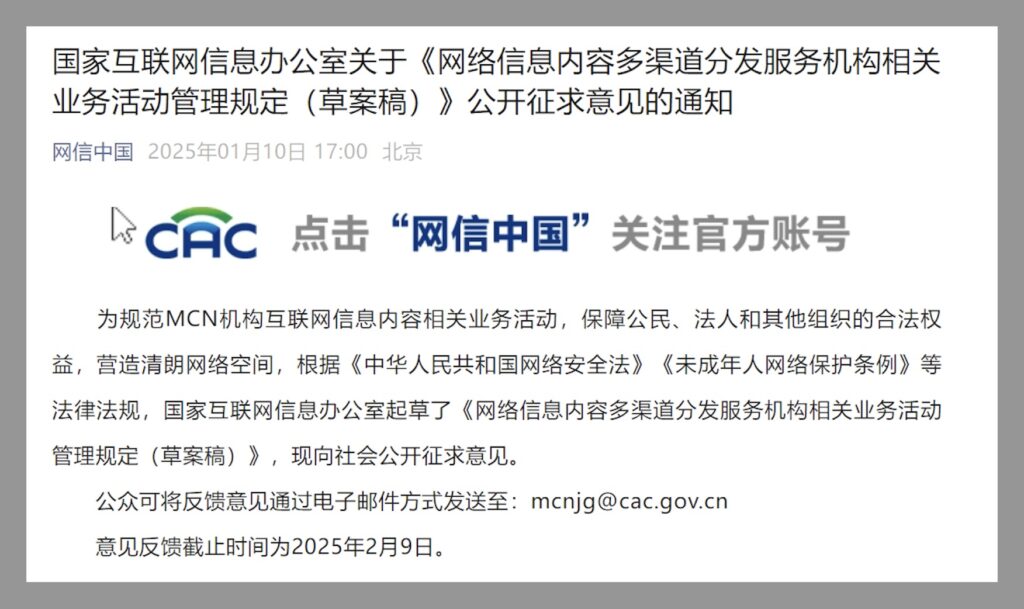
A live broadcasting studio (直播间) in China prepares for a session to be distributed over social media.
Last Friday, the Cyberspace Administration of China (CAC), the national agency overseeing the country’s internet and online content regulation, released a draft regulation aimed at standardizing the operations of the multi-channel network institutions (MCN机构) that serve as intermediaries for content creators on social media platforms. The draft is the latest effort to strengthen oversight of China’s social media industry, ensuring first and foremost that they adhere to political controls.
MCNs typically work behind the scenes in social media, managing and supporting content creators and influencers. They provide services such as content planning, brand deals, marketing strategy, and talent management — and can also help creators grow their online presence and monetize their content offerings. Key restrictions in the CAC draft prohibit MCN institutions from spreading rumors, inciting group confrontation, or exploiting minors for profit.
Political Constraints
But the draft, typical of such legislation, emphasizes first that MCN institutions must adhere to proper political direction (坚持正确政治方向) — meaning in line with the dictates of the Chinese Communist Party (CCP) — and adhere to correct “public opinion guidance” (舆论导向). Emerging in the wake of the brutal crackdown on pro-democracy demonstrators in China on June 4, 1989, “public opinion guidance” is a CCP phrase directly linking regime security to broader media controls and propaganda. The CAC draft further specifies the need to maintain public order, and follow business ethics to foster a “healthier online ecology” (良好网络生态), this being the leadership’s buzzword phrase for a political restrained yet commercially vibrant internet space.

The rules further ban unauthorized news services and require content platforms to establish dedicated channels for handling public complaints about MCN activities. Content platforms will also be required to ensure that MCN institutions register backend management accounts and link them to their associated network accounts — making it easier for the authorities to identify MCN institutions as the responsible parties in case of breach of political or ethical standards.
Professional Constraints
MCN agencies seeking to operate in China will need to complete a multi-step registration process under the proposed rules. First, they must register with content platforms, which are required to file the MCN’s registration with provincial-level cyberspace authorities within 10 working days. The platforms must verify that MCNs are properly registered businesses with appropriate content management personnel and safety systems in place.
Additionally, MCNs planning to engage in performance or program production activities will need to obtain professional qualifications or service certifications under the new rules, though the draft regulation does not make clear which government agency will issue these credentials.
The Chinese public has until February 9 to submit feedback on the draft.




















